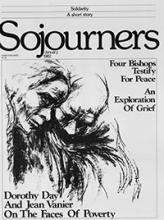"Blessed are those who mourn, for they shall be comforted." So Christ, in the second beatitude, lifts up the grieving, placing them among the poor in spirit, the peacemakers, the merciful, and the pure in heart. Jesus promises that they will be comforted.
People must mourn. Grief heals the suffering caused by loss. But sometimes people get stuck in grief. They are so devastated by their loss that they find themselves in an emotional conundrum which can lead to passivity and even self-destructive behavior. Grief is a bog in which people sometimes wallow.
The comforting of those who grieve is a ministry that has coexisted, largely unchanged, with the other ministries of the church. Grief was seen as a natural emotion that comes with tragedy and is soon put aside. Life, after all, goes on. "Wallow" was not a description of a condition, but a judgment denigrating people when they did not pick up the pieces and go on; they were considered weak and self-indulgent. Comfort was given for a "reasonable" amount of time, but then those people who were stuck in grief were left to suffer alone under the added weight of the stigma that came with not snapping out of it.
Our understanding of grief took giant steps forward during the last few years as it came to be seen as a process. In fact, the resolution of grief is far better understood than are the mechanisms which generate it. Counselors and comforters are available in almost every church to help people move through the phases of grief and to return them to a normal lifestyle. In the best of cases, they begin to work with people even before the grief inducing trauma occurs. When people are already stuck, these counselors are trained to recognize the signs and unstick them. Most importantly, comfort is no longer withheld from those who are stuck in extended grief, and the stigma has been replaced with understanding and compassion.
Read the Full Article

